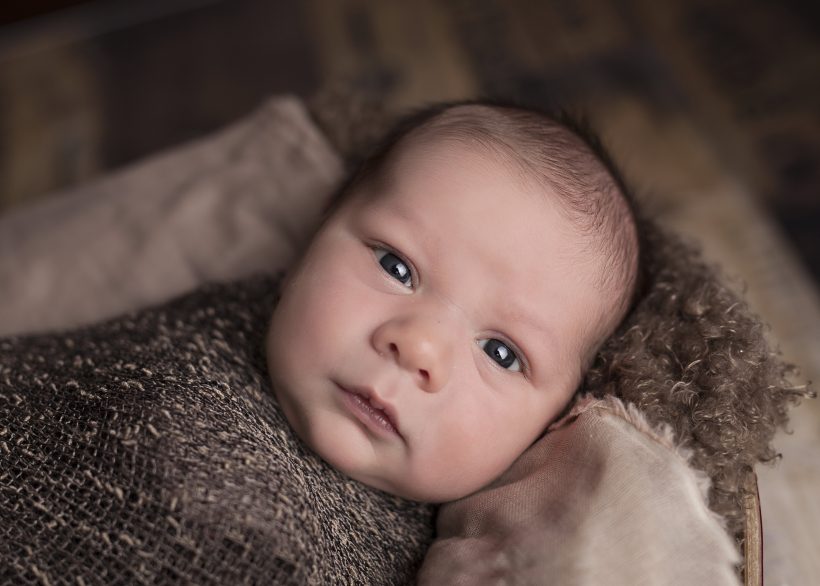
If you want to be an attachment parent, you have to breastfeed, babywear or carry your baby constantly, sleep with your baby and never have a life, right?
Wrong!
In fact, it has absolutely nothing to do with how you feed your child and has a lot to do with how you respond to your child’s needs. Do you play with your child? Hug them when they cry? Feed them when they’re hungry? Always keep them nearby during their first 6 months of life? Guess what? You’re an attachment parent!
I first learnt about attachment theory when I was studying my Early Years diploma, many moons ago, and it’s the kind of thing that once you understand, just makes a lot of sense. Since then, I guess I never really gave it much thought, other than, that’s probably how I will parent. I was reacquainted with attachment theory, once again, when I became pregnant and a friend mentioned this ‘new trend’ called co-sleeping.
Co-sleeping? What’s THAT all about? It was explained to me that co-sleeping means you either sleep with your baby or baby sleeps by your bed, meaning when baby cries, they are never far from comfort and food, two very essential things for this early stage of life. Well, yeah that makes sense. So, I did my research. This is when I met my old friend Attachment Theory, again. Only she’d changed a bit. Got older, got some new jeans, changed her hair, got married and changed her name to Attachment Parenting. Oh and it turned out, we had a lot more in common than I ever realised.
We both recognised that when babies cry, they are communicating a need. Be that hunger, pain relief or simply comfort. We both felt that it was always a safer option to keep baby close-by, during those early months, so that you can better regulate silly things like breathing, temperature, heart rate, hunger and so on.
We also both agreed, it was kind of ridiculous to think a baby, whose brain does not yet have the tools to create manipulating behaviour, could cry just to ‘get their own way’. Have you seen the size of a baby’s head? Their brains are so small, they only have room to work completely off their basic human needs.
There’s no room for negotiation. If they cry, they are literally just communicating one of their basic needs. Simple! It is literally, physically impossible for a baby to attempt any form manipulation or negotiation.
I think attachment parenting has recently been getting a bit of bad press, through what I believe to be a little misunderstanding and I think it’s about time we cleared this up. Attachment parenting isn’t a fad, it is just parenting, without all the, ‘Don’t pick the baby up too much, you’ll spoil him’, crap. I think most people assume, because a lot of parents who identify as an attachment parent tend to breastfeed, co sleep or babywear, that you have to do one or more of these activities in order to join the club. In fact, the problem is simply that not enough people, and most specifically, those who don’t breastfeed, co sleep or baby wear, are identifying themselves as attachment parents.
The other problem we have is that many people view attachment parenting as if it is something really demanding and difficult, when it’s the exact opposite. In fact, it’s kind of lazy parenting! By answering your baby’s cries with a hug or a feed, guess what? They cry less! Not constantly trying to put your baby down for a sleep, when they’re not tired, actually makes your life a lot easier. Understanding that babies don’t respond well to sleep training, prevents you from going through the heart-ache that comes with leaving them to cry and more importantly, the disappointment that comes with them waking and crying every time you try to put them down.
Studies show that when a baby cries, both the mother’s and baby’s cortisol levels in the brain, are raised. This means mother and baby are stressed! This goes against what nature expects you to do. It is your body’s way of telling you something is not right.
So what do we do? We follow our instincts to pick baby up and hold or feed him. And as if by magic, those cortisol levels are immediately reduced and are replaced with the hormone oxytocin. Oxytocin, also know as the love hormone, acts as a natural anti-depressant. So, in essence, attachment parenting can reduce a mother’s risk of Post Natal Depressiom (PND).
Being a parent that responds sensitively to your baby’s needs, I think, deserves some recognition. If you do this, well done! You have learnt that following your instincts and listening to your child works better than following the surrounding rules and opinions of others. It’s easy to lose track but I have found that the less I listen to the advice of others and the more I simply watch and listen to my baby, the smoother things go.
So, in summary, trust your instincts. They know best. Attachment parenting is NOT just another parenting fad. It IS just parenting. Exactly how it was meant to be, which is why when parents practice it, they find they are less stressed and that their babies cry less. This in turn makes it easier to understand exactly why your baby is crying, upset, grumpy, and also recognise everything that makes them happy.
It’s like I always say, Happy Baby, Happy Mammy!
Written by Lucy-Marie Cuzzocrea
Connect with
Maya and the Moon on Facebook to stay updated on Lucy's posts!
Republished with permission from www.mayaandthemoon.com - first published November 24, 2015
 If you want to be an attachment parent, you have to breastfeed, babywear or carry your baby constantly, sleep with your baby and never have a life, right?
Wrong!
In fact, it has absolutely nothing to do with how you feed your child and has a lot to do with how you respond to your child’s needs. Do you play with your child? Hug them when they cry? Feed them when they’re hungry? Always keep them nearby during their first 6 months of life? Guess what? You’re an attachment parent!
I first learnt about attachment theory when I was studying my Early Years diploma, many moons ago, and it’s the kind of thing that once you understand, just makes a lot of sense. Since then, I guess I never really gave it much thought, other than, that’s probably how I will parent. I was reacquainted with attachment theory, once again, when I became pregnant and a friend mentioned this ‘new trend’ called co-sleeping.
Co-sleeping? What’s THAT all about? It was explained to me that co-sleeping means you either sleep with your baby or baby sleeps by your bed, meaning when baby cries, they are never far from comfort and food, two very essential things for this early stage of life. Well, yeah that makes sense. So, I did my research. This is when I met my old friend Attachment Theory, again. Only she’d changed a bit. Got older, got some new jeans, changed her hair, got married and changed her name to Attachment Parenting. Oh and it turned out, we had a lot more in common than I ever realised.
We both recognised that when babies cry, they are communicating a need. Be that hunger, pain relief or simply comfort. We both felt that it was always a safer option to keep baby close-by, during those early months, so that you can better regulate silly things like breathing, temperature, heart rate, hunger and so on.
If you want to be an attachment parent, you have to breastfeed, babywear or carry your baby constantly, sleep with your baby and never have a life, right?
Wrong!
In fact, it has absolutely nothing to do with how you feed your child and has a lot to do with how you respond to your child’s needs. Do you play with your child? Hug them when they cry? Feed them when they’re hungry? Always keep them nearby during their first 6 months of life? Guess what? You’re an attachment parent!
I first learnt about attachment theory when I was studying my Early Years diploma, many moons ago, and it’s the kind of thing that once you understand, just makes a lot of sense. Since then, I guess I never really gave it much thought, other than, that’s probably how I will parent. I was reacquainted with attachment theory, once again, when I became pregnant and a friend mentioned this ‘new trend’ called co-sleeping.
Co-sleeping? What’s THAT all about? It was explained to me that co-sleeping means you either sleep with your baby or baby sleeps by your bed, meaning when baby cries, they are never far from comfort and food, two very essential things for this early stage of life. Well, yeah that makes sense. So, I did my research. This is when I met my old friend Attachment Theory, again. Only she’d changed a bit. Got older, got some new jeans, changed her hair, got married and changed her name to Attachment Parenting. Oh and it turned out, we had a lot more in common than I ever realised.
We both recognised that when babies cry, they are communicating a need. Be that hunger, pain relief or simply comfort. We both felt that it was always a safer option to keep baby close-by, during those early months, so that you can better regulate silly things like breathing, temperature, heart rate, hunger and so on.



